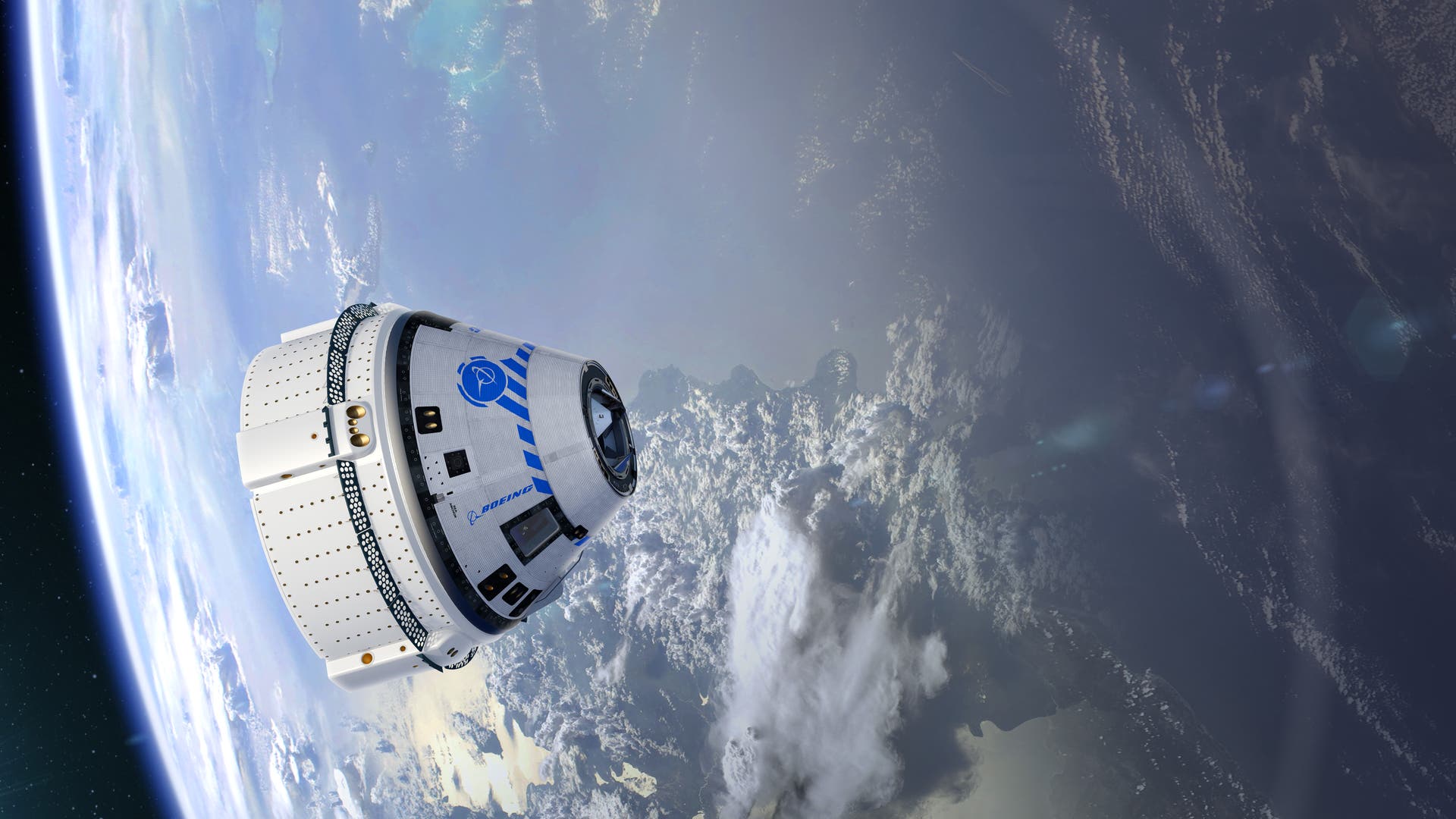Bankruptcies, bad luck and mishaps at Boeing
So, while SpaceX continued as planned and almost error-free after the initial difficulties, Starliner faced an almost endless series of problems, which were accompanied by increasingly harsh criticism of Boeing's project management.
During the “pad abort test,” an aborted flight simulation from the launch pad in November 2019, one of the three main parachutes failed to open. In December 2019, the aforementioned OFT-1 mission failed, so a second test flight had to be scheduled without astronauts on board. This was supposed to happen in November 2020, but several other modifications to the space capsule continued to delay this date. It was finally scheduled for August 2021. But just a few days before the start of the mission, when the rocket carrying the capsule was already on the launch pad, a malfunction was discovered in the valve system of the attitude control actuators. The rocket was transported back to the assembly building, the capsule was disassembled, and troubleshooting began.
It took until May 2022 for the drone flight test to be repeated. Once again, a whole series of anomalies occurred: among other things, several mode control engines failed, again due to insufficient functioning of the valves. At least this time the space station docking maneuver was successful. After the capsule returned safely, further faults were discovered in the parachute landing harness system and it was discovered that the wiring harnesses were insulated with flammable tape. Boeing had to improve the parachute system and replace the insulation of several kilometers of cable.
Boeing's reputation was, and still is, badly tarnished at the time. The problems of the Boeing 737 MAX passenger plane, which led to two crashes that resulted in several hundred deaths, and the story of the broken side panel of a brand-new Boeing 737 MAX, which occurred during an Alaska Airlines flight in January 2024, contributed to this . Not only has Boeing since then been viewed as a poorly managed company, more concerned with well-written quarterly reports than with technical perfection.
Even NASA admitted that it paid much less attention to Boeing than SpaceX during the development process. She justified this by saying that the Dragon spacecraft's design was more revolutionary than the more conservative Starliner design. This is confirmed by the exterior of the two spacecraft, but especially by taking a look at the interior of the cabin and the instrument panels. Everything at SpaceX looks very futuristic and tidy. All information and control elements are displayed on large touch screens and are reminiscent of a spaceship from a science fiction movie. The Starliner also has smaller touchscreens, but there are also dozens of switches, levers and pushbuttons, so that at first glance the cockpit looks like you're inside an Apollo capsule from the 1970s. Compared to the Crew Dragon, the Starliner looks very old-fashioned.

“Food practitioner. Bacon guru. Infuriatingly humble zombie enthusiast. Total student.”








More Stories
Kyiv: Russian Kursk offensive halted
US Presidential Election: Former US Government Officials Warn Against Donald Trump's Election
Netherlands wants to leave asylum system